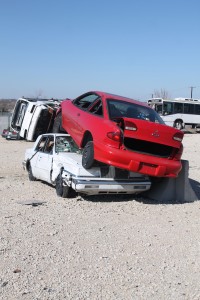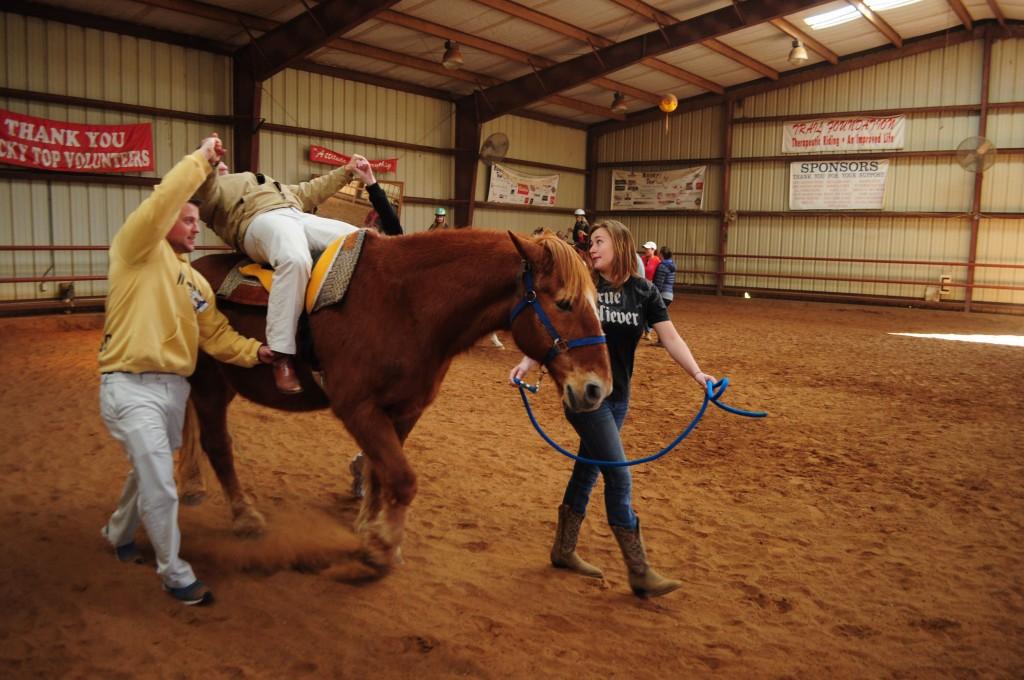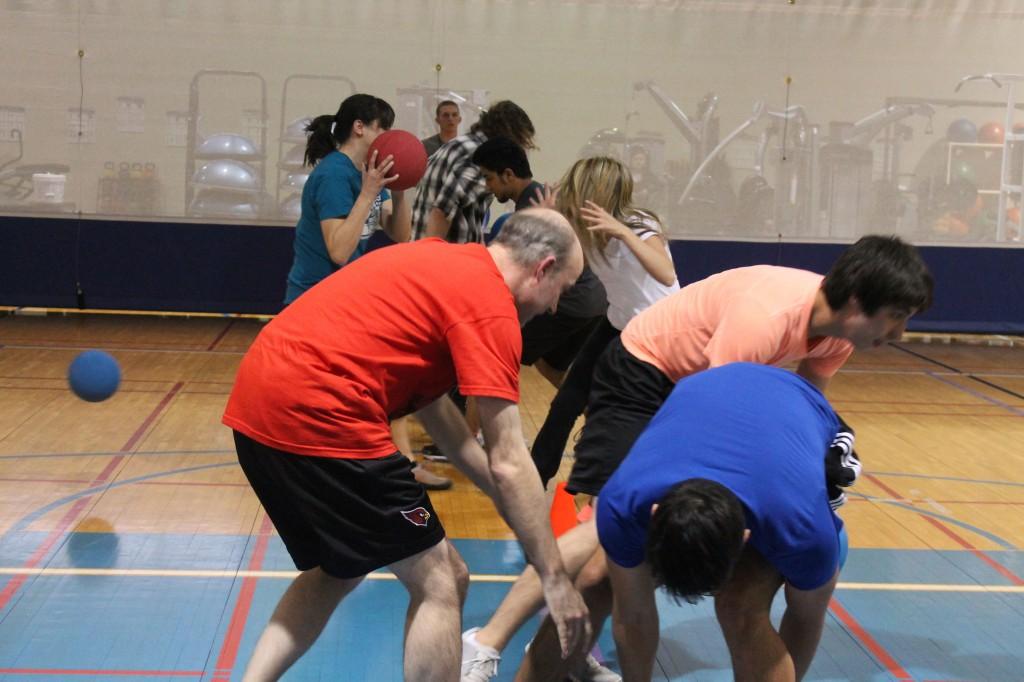
Photo by Haylie Jones/The Collegian
By Kenney Kost/managing editor
TCC has implemented a single-stream recycling program as well as programs for recycling its computer technology, fleet vehicles and police cars.
The blue and brown bins scattered around campuses and the white boxes in the halls and classrooms are being used, but director of strategic project development Margaret Lutton believes they have not reached their full potential.
“The bins and white boxes are for any recyclable materials,” she said. “I think that is the problem. Nobody really knows what they are allowed to put in them, so they stick to paper and plastic bottles. They are for anything you might have. Paper, plastic, glass, aluminum and other scrap metals can be put in the bins.”
Last year, TCC diverted 200 tons of garbage out of area landfills, assistant director of facilities operations Michael Tankersley said. The number has risen slightly each year, and he would like to see that number continue to grow as awareness is raised throughout the district.
With the single-stream program, the only obligation TCC has is to fill the bins, Lutton said. A company comes in, removes the materials and sorts everything off-site. This makes it easier for the TCC community to recycle.
The college has tried to raise awareness, Lutton said. On South Campus, around the time the program began, a display was set up to show just how much recyclable material is finding its way into the normal garbage bins and onto landfills.
“We went around the entire campus, pulling recyclables out of the trash cans,” she said. “In a 24-hour period, we pulled about 16 large garbage bags worth of recyclable materials out of the general garbage cans. So we can make improvements if people start to really participate in the program.”
Construction going on across the district in recent years is another source of recyclable materials like copper, aluminum and steel, Tankersley said. When the college has a bulk amount, officials contact salvage yards and take bids on removing it.
“Any money we make from recycling goes directly into the general fund,” he said. “Then that money can be used in many ways to improve the district.”
TCC has many fleet and campus vehicles for campus-to-campus use and intracampus use, Lutton said. The vehicles are purchased new and driven campus-to-campus for the first 100,000 miles of their life. When the 100,000-mile mark is reached or a TCC mechanic says it can no longer be driven off-campus, the vehicle is designated for intracampus use.
“We drive them into the ground, basically,” she said. “Repairs are still made to keep them running and maintained. Once the vehicle is no longer usable, which is determined by our mechanics, the vehicle is sent to our fire training program to use as a teaching tool.”
Once the vehicle makes it to the fire training center, it is used in a variety of ways, instructional associate David Lowe said. Mostly used as props in training scenarios, the vehicles remain in use until they are no longer beneficial and then traded in for a car credit at a salvage yard.
“We use them as props for the most part,” Lowe said. “We put them in the way of scenarios as obstacles and things of that nature. Sometimes, we will cut on them [in jaws-of-life training scenarios]. After we cut one up, we contact the salvage yard we purchase prop cars from, and they will give us a credit for a new prop car.”
TCC is on the right track as far as recycling is concerned, Lutton said, but more can be done to improve upon it.
“We are doing great so far,” she said. “We keep tons and tons of garbage out of area landfills each year, and the numbers are improving year to year, but we need help. Understand that the bins all around campus are for any recyclable material as well as the white boxes in the classrooms.”

























